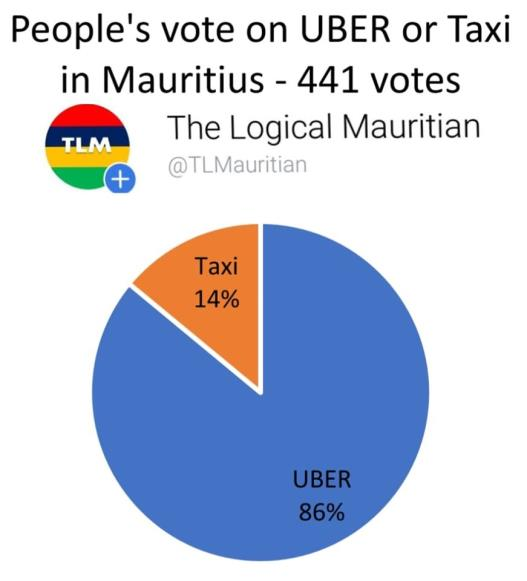The term Cyber-Island was initially coined by the Government of Mauritius back in 2001, with the aim to make Mauritius the first and only cyber-island on the planet. (http://news.bbc.co.uk/1/hi/business/1975400.stm)
Nearly 20 years ago, in the pre-Social Media era, such a phrase was an enticing and exciting prospect for young millennials, ready to kick start their careers, after graduating from college. Since then, we have had numerous Governments come and go and who had great plans to continue to build the Cyber-Island.
Below is a list of some ICT-related projects that had been planned to make Mauritius a Cyber-Island in the past 10 years (this information has been adapted from Government Programme 2010-2015 and Government Programme 2015-2019, available on the Govmu.org portal).
Between 2010 and 2015, we had:
- i-Mauritius (Intelligent Mauritius)
- Technology Parks to be constructed across the island
- One Laptop per Child Programme & Tablets in schools
- A National online library to promote and democratise access to information and knowledge
- e-Government applications such as E-Judiciary, E-Education Portal, E-Health and E-Agriculture
- Making Mauritius a secure ICT destination, with an effective Cyber Security Strategy
Between 2015 and 2019, we had:
- National E-Health Project
- Modern and State-of-the-art Technology for the Police Force
- A central database of criminals accessible online by approved institutions
- Safe City Smart CCTV systems
- The National TCI Strategic Plan 2015-2020 for an Intelligent and Smart Mauritius
- High-speed connectivity via FTTH (fibre) and 4G
- Rose-Belle Techno park, alone with cyber-cities in the North, East and West of the island
- Mauritius to become the ‘Virtual Office’ of Africa
- Free Wi-Fi in public places and educational institutions
- Move from Analogue to Digital TV broadcast
- National Open Source Policy and Strategy to encourage local ICT developments
- e-payment and online issue of permits via the Government Transformation Plan
What is a Cyber-Island?

Strictly speaking, a Cyber-Island would be a world leader in all things Technology. It would be the blueprint for other countries to follow in order to become a Technological Goliath. In a cyber-island, technology is an enabler and at the centre of developments across many if not all aspects of business,society and life. But how do you identify a cyber-island? What services/products should be in place to characterise acountry as a cyber-island?
Below is a non-exhaustive list of technological advancements that I believe should help us understand how a cyber-island would function.
Finance – Fintech for the common man
Financial Technology or Fintech is usually considered to be at the forefront of technological advancements for any country aiming to become a Technology Goliath in the global space.
Fintech, an amalgamation of the words Finance and Technology, refers to making Finance easier by implementing modern Technological solutions and practices, such as:
Contactless Payments – this is an NFC enabled card payment method used at retail POS/banks, with a secure spend limit. Contactless payments are also possible via mobile apps. The aim of this technology is to move towards a cashless society, where you do not need to carry fiat currency with you but instead you can make the most out of the digital solutions to using your money. As we have recently seen with Covid-19, there have been some reports that handling cash could cause further spread of the virus, therefore a cashless society has become more important than ever.
Retail Banking Services – Current Account Switching and Direct Debit Guarantees – These two services are the global standards implemented by banks/financial services, putting customers at the heart of their services. These technological solutions, though available from the pre-fintech era, are the foundations of making finance easier by using technology, in a cyber-island.
Retail Banking – Self Service ATMs – These types of ATMs are able to pay out as well as pay in cash/cheques immediately. Such technology, though not Fintech, would reduce queues and ensure a speedy service to customers, whilst also minimising human contact.
Mobile Banking – A mobile banking app where you can view balances, make payments, make transfers, add/remove payees, set up standing order/direct debits etc, without having to travel to your local bank or spending hours on the phone talking to Customer Support.
Mobile Banks – These are basically banks that function purely via an app. There are no bricks and mortal high-street retail banks. You get Customer Support via the in-built chat system. These mobile banks are at the heart of Fintech across the globe. You open your account via the app, KYC/Identification is carried out via the app and you are instantly given an account number that you can use. Obviously for this technology to be effective, government identification systems should have been migrated to an online centralised database in a cyber-island.
Open Banking – This is yet another Fintech development whereby you are able to view all your bank accounts in one single app, securely, with read-only access. In a cyber-island, there would already have such facility in place where you could manage your finances from a single banking app.

Smart Banking/Budgeting – Imagine your mobile banking app is smart enough to alert you when you have spent over a certain amount of your salary on petrol or groceries. Or your mobile banking app rounding all your spending to the nearest integer whilst saving the remaining cents in a separate savings pot, all automatically. Smart Classified Spending via Mobile Banking apps are trailblazing the Fintech space, with the aim to help people gain more control of their financial health and stability by budgeting their expenses.
Source: Monzo Bank Budgeting
Credit History Profile – Having instant access to your digital credit report via web and app is also a very important development within Fintech, which ensures people become aware of their financial health. In a cyber-island, along with the above described solutions, Fintech is also present and much more active in the background/the nitty gritty of Financial Services and Institutions. Fintech enables those institutions to minimise their operational costs which ultimately end up benefitting the customer with advantages such as fee-free transactions, low international payment costs, minimal currency spreads,etc. In a cyber-island with nearly 20 years of development, investment and innovation, such technology in the country’s Financial landscape should have been setting the pace for others to follow.
Education – Technology
Education in a cyber-island would be delivered by utilizing smart EdTech tools and systems.Such technological solutions include
- Smart Boards to promote interactive classroom learning,
- Online Homework/Study Solutions such as Moodle/ShowMyHomework,
- Student Laptops/Desktops to enable digital learning in the classroom and at home (on a temporary ‘loaned’ basis),
- Classroom Management Software to monitor and control student screens in real time,
- Cashless School Payment Systems between parents and schools,
- Strict Safeguarding tools and mechanisms to ensure students are using the internet safely and responsibly,
- ICT enabled lessons and exams to ensure teachers and students have a seamless learning experience, and
- AI-enabled Performance Monitoring & Tracking Tools to help teachers manage classroom academic performances.

Thus, in a cyber-island, state-of-the-art EdTech tools would ensure learning remains seamless and interactive for children and classroom management remains possible for teachers, especially during a global pandemic. EdTech would make this happen, without the need for static learning via Television Broadcast or setting up post-pandemic catch-up classes for those with no access to technology.
Transport – Technology

In today’s modern world, we have experienced the extent to which technology has changed and improved the way we travel. From smart highways to real-time traffic management, from green public transport systems to efficient vehicle history management, Transport Technology is continuously paving the way for an efficient and smart means of travel for people.
Source: MassTransitMag.com
In a cyber-island, the use of a real-time crowd sourced traffic data navigation app such as Waze would be more appropriate than an app with a CCTV footage of roads. Public transport with greener technologies such as electric or hydrogen powered buses would be prioritized and a universal Tap and Go passenger payment system such as NFC cards or Smartphone apps would be used across the country by all transport providers. Such a system would also improve the experience of elderlies and students who usually benefit from Free Public Transport, as government allowance payment to the Bus/Taxi companies would be based on the number of Tap and Go NFC logs recorded on their devices. Real-time bus times apps, real-time bus arrivals display at bus stops and hail & ride taxi apps such as Uber and Ola would make transport easier and cheaper for citizens.

Dedicated Cycle Lanes along with bicycle renting platforms and all required safety gears would be common across the country. Electric Car Charging points at specific parking spots and petrol stations would encourage the adoption of EVs (Electric Vehicles) and help decrease road pollution. An online publicly available Vehicle Database System to identify vehicles, their fitness history, their owner/insurance history and their mechanical history would make vehicle ownership and Track and Trace systems in a cyber-island a lot more secure and hassle-free. Such technology in the transport landscape would make life easier for all, in a cyber-island.
Security Technology
In a cyber-island, a Police Car would be more than just an Emergency Services vehicle. It would be linked to the National Police Database via LTE connection for incident management, ID management and Fine management. ANPR (Automatic Number Plate Recognition) would help automatically identify blacklisted or uninsured vehicles. Automatic Speed violation Detection systems and Vehicle Dashcams would be second nature to a police car. High Speed Chase Cars and Unmarked Police Cars would also be a very important part of the country’s Police Department.
Body-cams and interconnected communications systems would be a necessity for Police and other security services personnel, in order to ensure data is collected readily for any required investigation. This is how, I think, technology would make life safer for both citizens and Police in a cyber-island.
Tech Cities
Many technological world leaders have built their own Silicon Valley, a Tech city equivalent to San Francisco. Silicon Valleys are literally present across every continent: Reading/Newbury in the UK, Bangalore in India, Shenzhen in China, Lagos in Nigeria, Medellin in Columbia and Melbourne in Australia. A cyber-island would usually host its own Silicon Valley, hosting a variety of Tech companies/startups/university accelerators and R&D facilities that would be working on some of the latest technological developments. With the financial backing of Venture Capitalists and Angel Investors, some of these Tech companies could aim to become the next Tech Unicorn (Airbnb, Interswitch, Monzo, Ola).

Shared Economy/Gig Economy is the latest trend in the self-employment landscape. Companies such as Uber, AirTasker, AirBnB, PeoplePerHour are at the forefront of the gig economyand I believe such technological solutions would help build a diversified workforce in a cyber-island.
Environment – Green Technology
The latest trends in 21st century technology usually work in harmony with the environment. In a cyber-island located just off the equator, there would be more demand for Green Technology such as Renewable Energy for consumption (Solar, Wind-Power, Waves) and a fully digital infrastructure rather than a ‘paper-based’ system. Such systems would be put in place with a Green Incentive Scheme whereby there would be legal frameworks to require companies to become carbon-neutral andenvironmentally friendly.
Recycling would also be a major player in a cyber-island, especially with a large throughput onelectrical waste as well as consumption. Using technology to sort rubbish collection out where plastics, metals and general waste are triaged by robots in Waste Management factories is a major green achievement for a cyber-island.
A Cyber-aware Society
With technology, there are also cybersecurity needs. For a cyber-island to be at the forefront of technological advancements, its citizens must be cyber-aware. This is usually achieved by promoting learning of new technologies for adults and by running regular national workshops either on a voluntary or sponsored basis.
A cyber-island would also be aiming to produce the best of engineers and coders in order to enhance its global positioning in the latest technology trends such Robotics, Artificial Intelligence, Big Data and Blockchain. This starts with promoting coding skills for children at a very young age and implementing coding classes throughout a child’s learning journey.
Politics
Politicians in a cyber-island would usually be the ones who would promote technology to their people by using those technologies themselves in public. Using Social Media Live Videos in a sort of People’s Question Time where politicians and public can join Live and discuss specific topics is one way of reaching to people. Using Social Media platforms such as Twitter to keep citizens up to date with the latest developments/news/information in the country is also another way of utilizing technology for the good of the nation, in a cyber-island.
Health – Technology

Imagine walking into a hospital, giving your name and ID number to the doctor, and your full medical history (your health conditions, your visits to hospitals across the country, all prescribed medications, all medicals tests results) becomes readily available to the doctor. This would save you the hassle of explaining your medical history especially when you are in pain and ensure the doctor is delivering the most appropriate care to you. Ultimately, such a system would ensure an efficient patient care system and therefore, a healthier nation.
This is something that a cyber-island would be championing, along-with a breadth of regularly serviced and latest specialist MedTech/HealthTech tools and apparatuses such as MRI scanners, ECGs and Dialysis machines.
In addition to the above, an ambulance in a cyber-island would not be a mere form of emergency transport but instead, a mobile hospital with a Paramedic and all the medical tools and technologies required to save lives, especially in time-critical cases such as Stroke and Heart Attack.
Democracy
The complete power of technology can only be harnessed in a cyber-island if the right laws are in-place. Freedom of Information, General Data Protection Rules, Data Protection Acts and Freedom of Expression are all foundational laws that would help push technology at the forefront of the society. There would also be legal frameworks built around technological uses in specific sectors such as Police, Transport, Education, as described above.
With technology, Public Consultations and Referendums would also be easily carried out ensuring that public opinion is gathered before any national projects or changes. Project proposals and other such information would be made available online to citizens so they can make an informed decision.
An Online Petition would also form part of a Democratic Cyber-Island whereby citizens could start a petition on a national topic that they are concerned about and Parliament would be legally bound to discuss the topic, should the petition reach a specific threshold of people/signatories.
The implementation of independent, unbiased and accessible Ombudsmen in the Telecommunications, ICT and e-Commerce sectors would be another critical requirement for a technologically advanced cyber-island, acting as a Watchdog for both the people and the authorities.
There are a lot more technological implementations that are possible and that I have not elaborated on at this time.
At the end of the day, I strongly believe that we should be looking at making the life of our fellow compatriots better, by implementing technology in the right way for the right needs and solving the immediate problem(s) facing the nation.

So, before I let you off, I’ll ask you, after the past 20 years of planned Government ICT related projects (i-Mauritius, e-Government, e-Health etc), has Mauritius achieved its Cyber-Island status?
Thank you for reading








Non, Maurice pa encor vin cyberisland!